By Blossom Chukwu
National Insecurity, ranging from cybercrime, terrorism, killings by non-state actors, banditry and kidnappings, has been a major source of concern in Nigeria. While it is expected that Government ought to have done everything within its powers, to curb the menace, the challenge has persisted through the years, threatening lives and properties, and creating financial losses for Government and private sector organisations in the society.
Though the challenge as earlier noted, has persisted through the years, different administrations of Heads of State and Government, has experienced it at different levels. It will be recalled that the immediate past President Muhammadu Buhari, pledged in his campaign promises and inaugural speech, to deal decisively with Corruption and Insecurity. President Bola Ahmed Tinubu in his inaugural speech, has also promised among other major expectations from Nigerians, to prioritise Security and effectively tackle the menace of Insecurity.
In his words, “To effectively tackle this menace, we shall reform both our Security Doctrines and its Architecture. We shall invest more in our Security Personnel, and this means more than an increase in number. We shall provide better training, equipment, pay and firepower”.
The summary of what President Tinubu has promised in his inaugural address, is highly needed because it is on record, and constantly in the news, that bandits and terrorists have sustained attacks on communities in the North, thus worsening the plight of residents, who have been displaced from their communal homes. From Sokoto state to Benue state, it is the same story of agony, as scores have been killed and hundreds displaced by unrepentant bandits and terrorists.
Some of the recent attacks include what occurred on June 26, where bandits attacked the Ruwan Dorawan village in the Dutsinma Local Government Area of Katsina State, and they had a fierce encounter with the Police who subsequently repelled them. On June 15, tragedy struck at Molai, Konduga Local Government Area, Borno State, when suspected Boko Haram insurgents killed eight farmers.
Residents of Tangaza and Gwadabawa Local Government Areas in Sokoto State, are yet to recover from brutal attacks on their communities by bandits. On June 3, two Local Government Areas became a tragic scene, when six communities were attacked. The bandits invaded three communities including Raka, Raka Dutse, and Filin Gawa, in Tangaza Local Government Area, killing many residents, while several others were injured. Another set of bandits went on rampage in two villages of Sakamaru and Bilingawa, in Gwadabawa LGA.
The immediate past Chairman of the Local Government, Bashar Kalenjeni, while confirming the attacks, said 18 persons were killed at Raka, 17 at Filin Gawa, and two at Raka Dutse. He explained that the same bandits further disrupted the burial arrangements of those killed in the attack, when residents were about to give them befitting burials in accordance with their faith. According to him, the “offence” of the villagers, was their refusal to pay levies imposed on their communities.
Also, Muhammad Nasiru, a resident of one of the affected communities, said bandits’ attacks on their communities had become worrisome. He said most of the residents, who are farmers, have abandoned their farms due to the activities of bandits, who always make frivolous demands. He however appealed to Security Agencies in the State, to deploy more men in the area to assist the people of the communities, to live in peace.
Meanwhile, the Sokoto State Governor, Ahmed Aliyu, recently convened an emergency meeting with Heads of Security Agencies in the State, to find a solution to the attacks. The meeting identified a lack of general welfare of Security Personnel attached to flash points, as one area that needs urgent attention to boost their morale.
During the meeting, it was discovered that Security Personnel on patrol, along areas with high-security risks, were being owed five months’ allowances by the State Government. In the same vein, security vehicles being used to patrol those areas, were also found to be getting weak and cannot be effectively utilised for patrols.
The Governor, however, promised to look into the logistics and other challenges, hindering the smooth operations of the Security Personnel, deployed in flash points across the State.
In similar violent attacks, no fewer than 26 people have been killed in the past one month in some parts of Benue State. Four people, including a policeman and a Catholic priest were kidnapped within the time frame. Twenty five were killed by gunmen on June 3rd at Imamde Mbakange in Mbacher council ward in Katsina Ala Local Government Area of the State, while a personnel of the State Community Volunteer Guard, was killed on June 30 in Logo LGA, in the State.
A former Governor of the State and member of the PDP Board of Trustees, Alhaji Attahiru Bafarawa, expressed concern over the Banditry in the North-West and North-East, which he said constituted a serious threat to Food Security in Nigeria. He warned that if stringent measures were not taken to curb Insecurity, the North would face severe educational backwardness in the next few years.
Bafarawa said that many primary and secondary schools in Northern Nigeria, had been shut down because of the activities of bandits, saying, “This is a serious disaster.” He advised that the Government should get its priorities correct. He said “The bandits have also refused to allow farmers to cultivate their crops”.
This he noted is a very dangerous situation, not only because the bandits are killing people, but also because Food scarcity is going to be too serious in the next few months, especially in the North West and North East. So, “We want the Government to wake up and do something about it”.
With details of some of these recent killings, It is also on record that Boko Haram, a militant Islamist group destabilised the North-East of Nigeria with the onset of recent terrorism attacks in the region, for a period of time. Since 2009, the group killed tens of thousands of people and displaced millions more. About 2.5 million people fled their homes and towns, and the direct consequence of the conflict, was that the North-East was plunged into a severe humanitarian crisis.
In his first term, Muhammadu Buhari said his Government would bring an end to the national suffering inflicted by Boko Haram. Though the Government made significant military gains, reducing the number of Boko Haram attributed deaths from more than 5,000 in 2015, to less than 1,000 in the past few years, the crisis is still not yet over.
This, Security Analysts have said would be a grave mistake for President Bola Tinubu, to disregard the continued importance of the conflict, which Nigerians are expecting a lot from him to act speedily on, in curbing the menace of national Insecurity. Though Suicide attacks and kidnappings have continued at reduced levels, Farmers/Herders clashes and Banditry, have raged on in the region and across the country.
For the Farmer/Herder clashes, the Middle Belt region of Nigeria has faced prolonged violent clashes between the predominantly Christian farmers and the mostly Muslim cattle herders. At the core of the conflicts are disputes over access and rights to land and water resources, and rapid desertification, which has changed the grazing patterns of cattles.
These clashes are not necessarily new, but since 2015, the disputes have become more frequent and violent. In 2018 alone, more than 2,000 people were killed in such clashes. The conflict now claims an estimated 6 times more than the Boko Haram crisis. Several Nigerians are of the opinion that the dispute is being politicised, and is stirring ethnic and religious tensions, which is very dangerous in a deeply divided country like Nigeria.
In recent discussions with Security Experts, among different solutions proffered, some major ones include the following:
- That the Government should increase funding for Security Agencies to enable them procure more modern equipment and technology, to combat Insecurity effectively.
- That Nigeria should collaborate more with neighbouring countries, to tackle cross-border criminal activities, such as arms smuggling and Banditry.
- That the Government should address the root causes of Insecurity such as poverty, unemployment and inequality.
- That the Government should invest in Community Policing to enable Security Agencies work closely with local communities, to identify and tackle security threats.
- That the Government should strengthen Intelligence Gathering, in order to anticipate and prevent security threats before they occur.
- That the Government should focus more on addressing Corruption within Security Agencies.
- That the Government should Dialogue more frequently with Stakeholders, including religious and community leaders, to address underlying grievances that fuel Insecurity.
- That the Government should improve Border Security by deploying modern technology, to monitor the movement of people and goods across the borders.
These are bullet points we trust that the Tinubu Government should focus on, in tackling the challenge of Insecurity across the country. The Government at this point is also advised to invest in peace-building, reconstruction, rehabilitation and socio-economic development, for already affected areas that are trying to find their feet again, amidst constant security threats. The President must find inclusive and creative ways of addressing and de-escalating these complex conflicts.
It is also expected that both internally and across the comity of nations, Nigeria, given her economic, cultural and demographic might, must use its influence and power, to contribute to peace in West Africa and the broader African region. This is especially, as its stability has an inextricable impact on the peace, progress and prosperity of the continent.
Since Nigeria has also contributed to the de-escalation of conflicts in Liberia, Sierra Leone and most recently in Gambia, and other parts of Africa in recent decades, Nigeria must continue along this path. This is the more reason why President Tinubu must not just voice out his discontent with the current situation, he must also ensure that Nigeria moves away from the cycle of constant internal conflict and instability on all fronts, to a more secure, stable and formidable African power.
ECONOMIC HARDSHIP: WHAT TINUBU NEEDS TO DO NOW
By Christopher Okpoko
There is no gainsaying that the economy under the immediate past administration of former President, Muhammadu Buhari was really tough for many Nigerians. From several indices, it is clear to see that many Nigerians are in dire hardship. During that regime:
Gross domestic product (GDP) averaged about one percent; the country suffered two economic recessions within four years; unemployment and underemployment increased to an all-time high of about 56 percent; and about 63 percent or 133 million Nigerians were pushed into multi-dimensional poverty- according to report of the National Bureau of Statistics (NBS). Furthermore, the 2022 Multidimensional Poverty Index (MPI) stood at 0.257, which indicated that poor people in Nigeria experience just over a quarter of all possible deprivations.
Nigeria dropped from 15th most miserable country in the world’s ranking in 2020 to 11th in 2021 ranking, thus becoming the fourth most miserable country in Africa, only behind Sudan, Zimbabwe and Angola. The World Bank’s 2020 Human Capital Index showed that Nigeria’s human capital development ranked only 150 of 157 countries.
The misery index, which is an indicator used to determine how economically well off the citizens of a country are, climbed to 55.2 percent in February 2023, according to data from the NBS. Before now, the official exchange rate was about N460 to the US dollar, while the black market rate was about N700 to the US dollar
The inflation rate reported by NBS as at May 2023 was 22.41 per cent and projected by experts to climb to 30 percent by the end of June 2023; Cost of food in Nigeria increased by about 25 percent compared to the same period the previous year. With the increasing cost of food prices worldwide in recent time, food security has become a major policy issue in many countries. The scale of the current global hunger and malnutrition crisis is enormous. World Food Programme (WFP) estimates that more than 345 million people face high levels of food insecurity in 2023. That is more than double the number in 2020. This constitutes a staggering rise of 200 million people compared to pre-COVID-19 pandemic levels. In this regard, the 2022 Global Hunger Index, ranked Nigeria 103rd out of the 121 countries and also indicated that with a score of 27.3, Nigeria has a level of hunger that is severe..
In addition, the insecurity in many parts of the country has contributed to the hardship faced by many people. According to the International Committee of the Red Cross (ICRC), the armed conflict in Nigeria has forced an estimated two million people to flee from their homes. Many of them are now internally displaced while others have sought refuge in neighbouring countries. The sit at home order in the South East and the conflict between herders and farmers especially in the middle belt area (which is Nigeria’s food basket) have impacted negatively on the economic and social well-being of the people
With the removal of fuel subsidy and floating of the exchange rate (which has resulted in the devaluation of the naira by about 50 percent) by the new administration of President Bola Tinubu, official exchange rate has accelerated to about N700 to the US dollar; inflation has spiraled- cost of transportation, goods and services have tripled in some instances. In fact, the hardship has multiplied and many more Nigerians now face extreme hardship and may not be able to meet their basic needs, such as food, housing, or medical care.
Therefore, to ameliorate the suffering of Nigerians we suggest as follows:
Expedite Palliatives
Aftermath of the fuel subsidy removal, President Bola Tinubu directed the National Economic Council (NEC) to come up with inputs on palliatives and the minimum wage review as part of measures to cushion the pain of subsidy removal. The NEC needs to expedite its input so that the implementation can begin immediately even if in phases.
Attack Inflation
High and rising inflation has taken a toll on household’s welfare and price increases have pushed more Nigerians into poverty. The Central Bank of Nigeria (CBN’s) monetary policy so far has failed to stem the rising Inflation, hence, government should concentrate on providing social infrastructure that would encourage the private sector to invest and expand output, taking advantage of existing unemployed resources. This would help to stem inflation in Nigeria which is being caused by scarcity. Also, federal government should reopen the borders for basic food items so that consumers can have access to cheaper goods to curtail the high and rising inflation
Create massive jobs
The lack of job opportunities is at the core of the high poverty levels, regional inequality, and social as well as political unrest. According to Policy makers in the United States of America, work is the solution to poverty. In this scenario, the government’s role is to promote employment rather than provide income support for families. Work may not offer the entire solution to poverty especially for minimum wage earners. But it will enable working families to meet their basic needs without experiencing critical or serious hardships.
Encourage Local Manufacturers
The experiences of countries such as China, Brazil, South Korea, Singapore and Malaysia have proven that the manufacturing sector plays a critical role in transforming many less developing and middle-income countries and can be replicated in Nigeria, Therefore, government should actively promote manufacturing through targeted infrastructure, skills development, financial policy, making quality connections with agriculture and services in partnership with the private sector, and preparing for a more digital future
Resolve issues causing insecurity
The World’s Human Rights Report’ highlighted the drastic effects of conflicts in many sub-Saharan African countries, including Nigeria, while blaming the development on the failure of leadership and global organizations. Similarly, a report recently published by the Global Initiative Against Transnational Organized Crime (GI-TOC) recommended that to solve the issues of insecurity and terrorism in Nigeria, the problem of cattle rustling must be given priority. The report identified cattle rustling as a significant contributor to rising insecurity in the country’s northern region. Therefore, the Tinubu administration needs to begin dialogue with the Boko Haram sect, the national leadership of the Miyetti Allah Cattle Breeders Association of Nigeria (MACBAN) and the leader of the Indigenous People of Biafra (IPOB) with a view to achieving peace in the country.

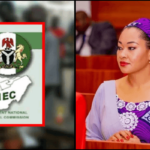
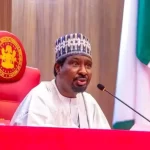


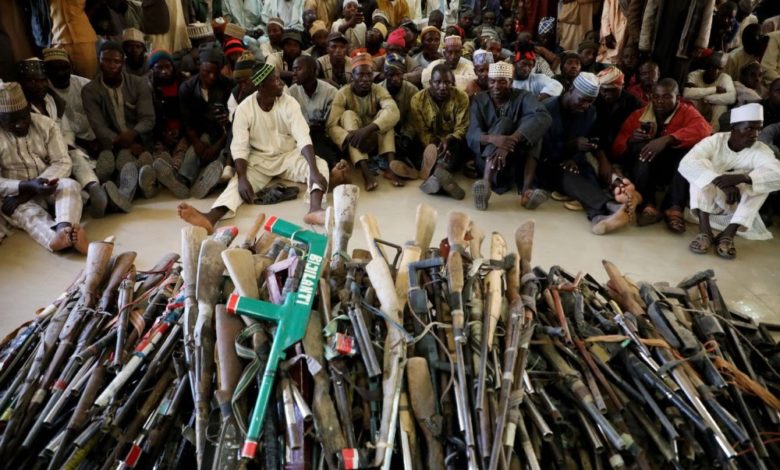
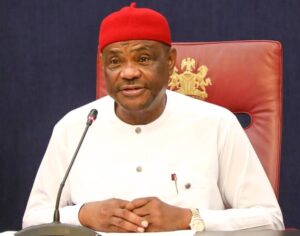
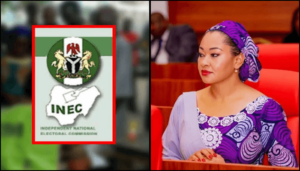
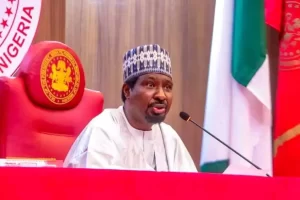
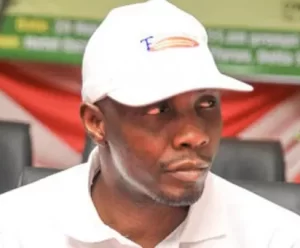
More Stories
Wike to critics: ‘I will live to sign condolence letters of those who said I collapsed’
INEC explains reason for abandoning recall of Senator Natasha
Uromi Killings: DSP Barau donates N16m to families of victims, reassures of justice